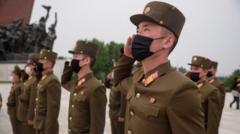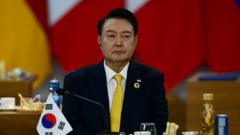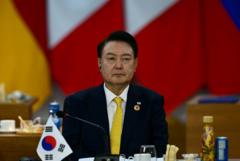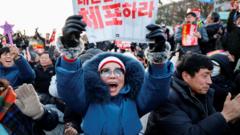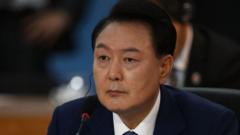The South Korean government’s designation of K-pop idols as non-workers has ignited a debate over rights and representation in the entertainment sector.
Are K-pop Idols Considered Workers? South Korea's Controversial Viewpoint
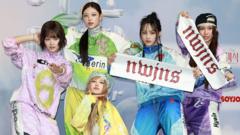
Are K-pop Idols Considered Workers? South Korea's Controversial Viewpoint
South Korea's labor ministry claims that celebrities like K-pop idols are not workers, sparking outcry over their treatment within the industry.
South Korea's Ministry of Employment and Labor has ignited controversy by declaring that K-pop celebrities, including the popular girl group NewJeans, are not classified as workers under the nation's labor laws. This statement came in light of claims by NewJeans member Hanni regarding workplace harassment from their record label, Ador. The ministry argued that, according to the Labour Standards Act, individuals in the entertainment industry do not meet the criteria of workers, and therefore, are not entitled to the same protections and rights.
Hanni, a 20-year-old member of NewJeans, expressed her grievances during an impromptu YouTube livestream, noting the toxic working conditions and interpersonal conflicts within their agency. Her allegations of bullying and neglect led to public petitions urging governmental intervention. The ministry's swift dismissal of these claims has resulted in significant backlash from fans and advocates for better labor rights, reigniting a discussion on the need for reform in the K-pop industry.
Critics assert that K-pop idols endure extreme working conditions, often facing grueling schedules with no fixed working hours. CedarBough Saeji, a professor specializing in East Asian studies, highlighted that the physical and emotional demands placed on these artists create a situation often characterized by exploitation, as they lack the protections and support that come with formal labor contracts.
Legal experts like Chunghwan Choi point out that under current South Korean laws, entertainers' income streams categorize them as independent contractors rather than employees, which conveniently circumvents regulatory labor protections. The absence of a robust labor union or governmental advocacy for entertainers condenses this ethical dilemma into a broader industry issue, demonstrating an urgent need for reforms that would provide adequate protections for those in the entertainment sector.
Supporters of NewJeans rallied on social media using the hashtag "IdolsAreWorkers," drawing attention to the flaws in labeling celebrities outside the worker classification while still demanding fair labor conditions. The debate has resonated with individuals on social platforms who recognize the inadequacies of existing labor laws and continue to push for systemic change within the K-pop industry.
As discussions for establishing similar legislative measures like the Talent Agency Act in Hollywood move forward, the conversation continues to evolve, shedding light on the pressing need to reevaluate the status and rights of those who significantly contribute to South Korea's cultural landscape, particularly in the demanding realm of K-pop.

